BIUTIFUL (2010)
A man dying of cancer tries his best to leave the world on his own terms.
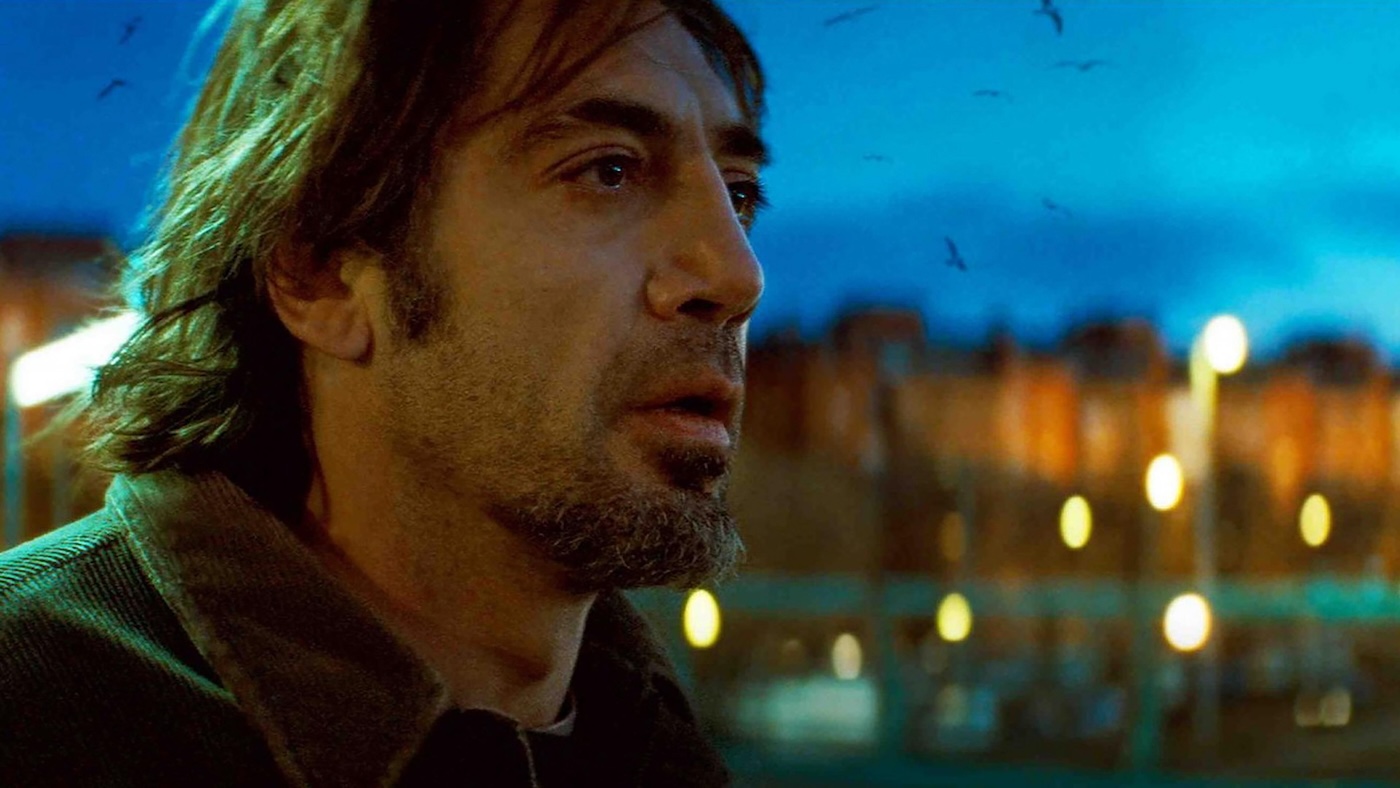
A man dying of cancer tries his best to leave the world on his own terms.

It’s impossible to praise Alejandro González Iñárritu’s Biutiful without mentioning Javier Bardem’s (No Country for Old Men) leading performance. As Uxbal, a father of two who learns that he has terminal prostate cancer and just a few months left to live, Bardem presents a masterclass in silent grief. Choosing not to disclose his diagnosis to his loved ones, he presses on gamely as life throws setback after setback at this protagonist. Though the film struggles to enter a second gear that doesn’t constantly prioritise its bleak, one-note attitude towards life, Bardem wears his pain with such genuine agony that one can’t help but be moved by his predicament.
Uxbal wants to set things right, but what does that even mean in the context of a life that continues as normal even as he learns that he will soon die? People will keep helping and hurting their fellow man long after Uxbal’s passing, and the shady business that this protagonist is engaged in—working with illegal Chinese immigrants making fake designer goods, as well as illegal African immigrants who sell these items on the street—extends far beyond him. The world moves at a relentless pace, while Uxbal is like a fly trapped in amber, his mindset a crystallised moment of bittersweet agony in the realisation that there’s so little time to set things right.
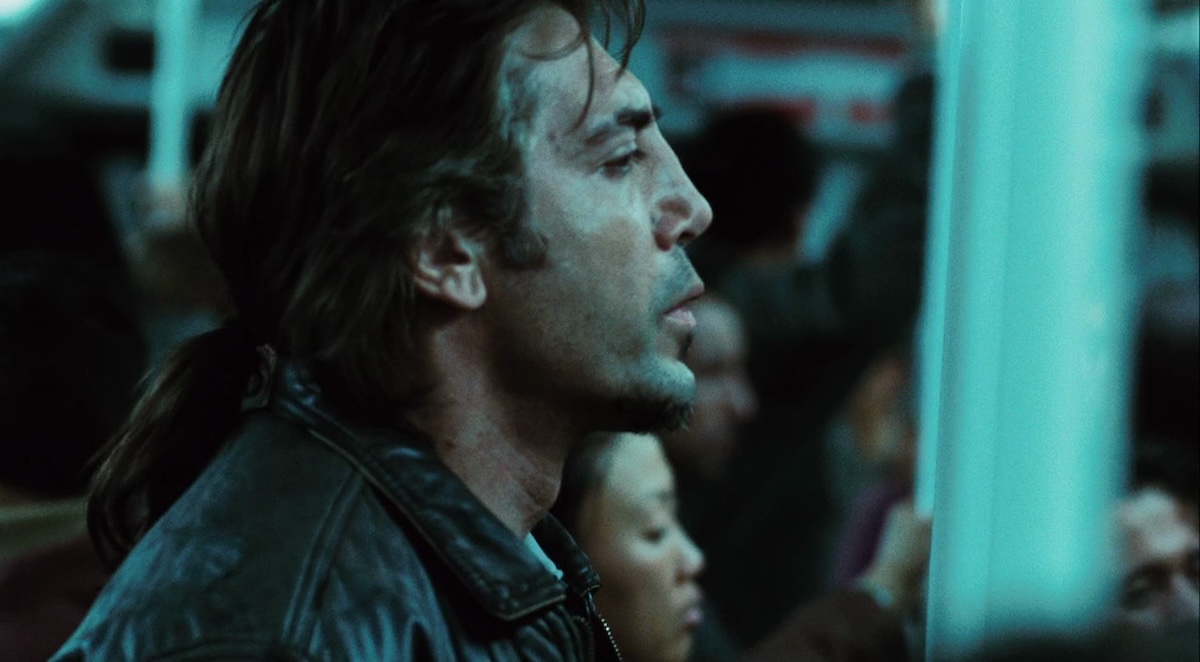
There are some extraordinary moments of visual beauty in Biutiful, aided just as much by Bardem’s performance as they are by Rodrigo Prieto’s wonderful cinematography. It’s rare that you even see a cold climate in Mexico in film, whether that’s a Mexican production or an American one that treats it as one of many backdrops. Yet you can feel the inescapable cold here, mirrored in this story’s brutal conditions and the lack of warmth between many of its characters.
There’s beauty amidst that brutality, whether it’s in a cluster of birds circling through the air, harmonious in a way that human beings could only aspire to, or flashing lights and drug-fuelled dancing in a nightclub. But because this story flows through Uxbal, it’s as if these moments aren’t truly wonderful until we see his reaction to them, with Bardem shaping a poignant look or brief smile in the mask of agony he bares over the course of this film. It’s fitting that this protagonist is said to have the ability to speak to the dead, looking beyond a pale and stiff body into what lies beneath, since there are so many moments where you need only look at Bardem’s face and see right into Uxbal’s soul.
It’s very rare that films contain characters that feel as if they have a tangible past, but there’s a familiarity that’s instantly drawn in Uxbal’s interactions with his two children, Ana (Hanaa Bouchaib) and Mateo (Guillermo Estrella). Uxbal isn’t a perfect father, but he’s an earnest one. In just a few short scenes between the trio you can feel his sincerity and the familiar backdrop of their interactions. The film confirms as much later on, but it’s clear that he was once a fun-loving, skirt-chasing, deeply irresponsible youngster who has done an excellent job of moulding himself into a dependable family man. But it’s also obvious that these stressors have been gradually eroding his spirit, amplified tenfold once he knows that he hasn’t long left on this Earth and must do his best to look out for his children’s welfare. Their mother, Marambra (Maricel Álvarez), is well-meaning but volatile, a loose cannon who has one good day, then an immediate setback.
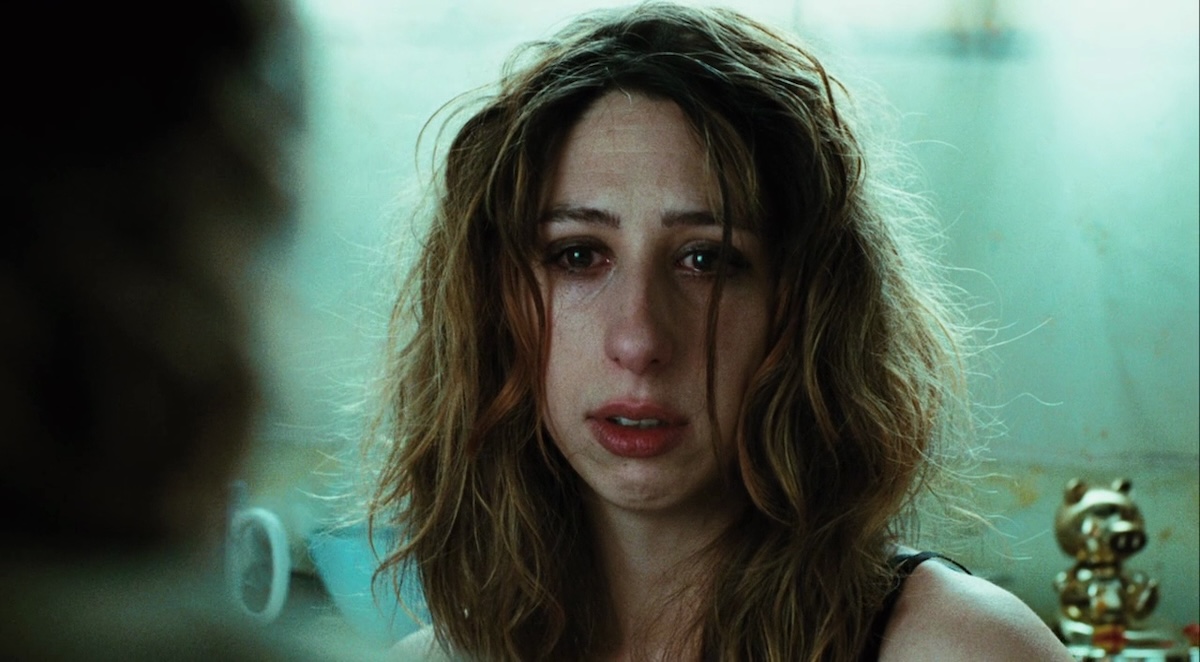
She’s constantly shifting gears, something that this film is reticent to do. It’s so committed to capturing Uxbal’s bleak reality that it makes its antidotes for that despair punishingly brief. Of course, one could say that a terminal diagnosis is so inherently depressing that there shouldn’t be an attempt to switch the story’s focus or alter its tone, but there are far more ways that this movie injects its pitch-black bleakness into its storytelling. On a first watch, the most depressing of these ordeals—an event so dark that you will know what I mean the instant you see it—put me off the film entirely, ruining an otherwise moving depiction of the last days of a life that refuses to slow down even as it comes to a close.
On a rewatch, this section of the story proved more appreciable, as it explores guilt as opposed to only honing in on Uxbal’s despair. Biutiful’s editing is also a much-needed respite from this slow, sad story. It’s more noticeable in explicitly fast-paced scenes, like the nightclub sequence where Uxbal and his brother Tito (Eduard Fernández) party together, but even in simple, domestic scenes editor Stephen Mirrione does an excellent job of punctuating the stresses of everyday life. Life already moves at a fast enough pace as it is for a man having to raise a family and keep up with issues at work (which include poor living conditions for these illegal immigrants, constant arguments with his boss over pay, and arrests and deportations of some of these workers). But when his cancer diagnosis stops him in his tracks, something as simple as a mundane conversation seems to sweep by him, conveyed wonderfully through a subtly chaotic editing style.
For as committed a character study as this film is, it could do with fleshing out some of its side characters more. Tito is practically non-existent, whether as Uxbal’s brother, Ana and Mateo’s uncle, or someone to seek money or other help from. It’s as if he’s been intentionally cleaved from the narrative (except for the rare moments when it suits this story to have him appear) so that this protagonist can seem more lonely and dependent on a miracle to help his family than he really is. Ige (Diaryatou Daf), the wife of a recently deported African immigrant Uxbal worked with, is also underdeveloped, first presented as a problem for this protagonist to deal with, before Uxbal becomes something of a burden for her instead. It’s a compelling shift in their dynamic, but there’s very little to grasp when it comes to her character.
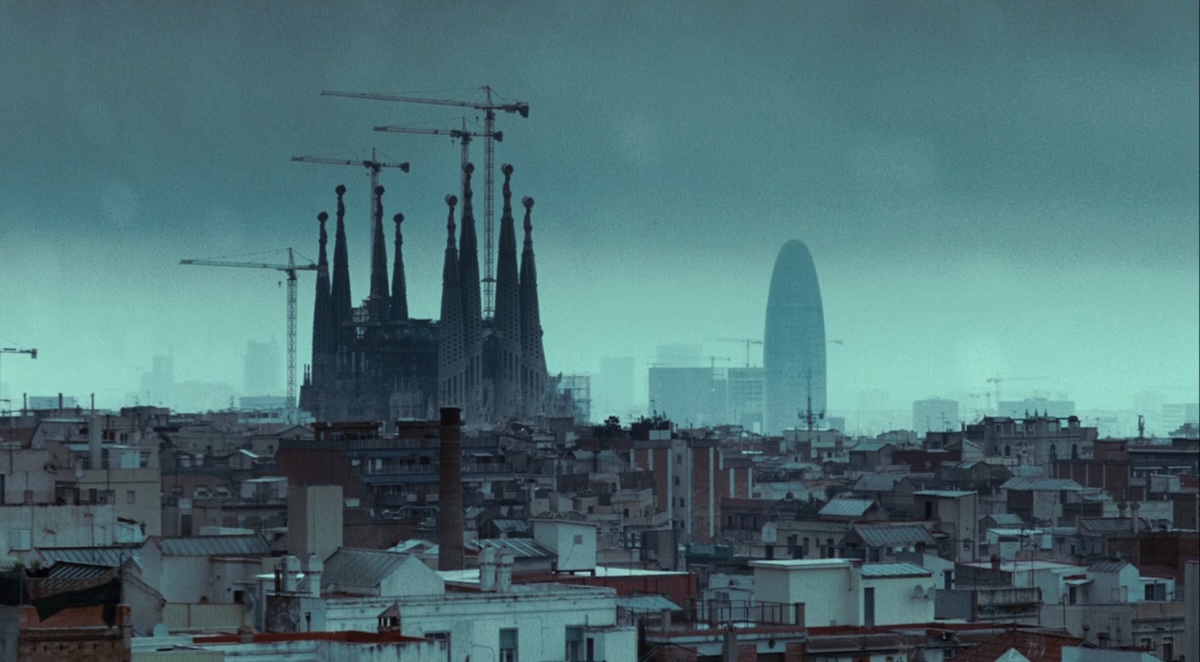
The same is true of the two men leading the charge when it comes to finding work for these illegal immigrants. Not only are they cunning and greedy figures, they’re also lovers who struggle to reconcile their role as business partners. They are such a small part of the film that they could almost be forgotten a week or so after watching Biutiful, despite their culpability in poor conditions and tumultuous relationship offering notes of tragedy and bitterness that are never seized upon. Even Uxbal’s children, who actually come across as real kids through everyday interactions, a testament to the child actors’ abilities and Iñárritu’s direction, aren’t often present. We learn through Marambra that Mateo, who looks about seven years old, has begun smoking, and there are other hints shared between the film’s former lovers that their children are suffering the effects of a fragmented family unit. But we never see these issues being presented, so any attempt to confront or put an end to them is also absent.
A lot of this unexplored territory can be logically justified when one remembers where this film’s focus lies. Uxbal doesn’t care about his employers, he has too many dilemmas to view Ige’s problems as anything more than a burden to shoulder, and he’s too invested in keeping himself and his family afloat to check in on his children. That doesn’t quell the feeling that something is missing from the experience, and not in the poignant sense that Uxbal still has so much life left in him and so little time to experience it. But Biutiful is still an effective experience, with some hauntingly ethereal moments, one of the finest leading performances of the 21st-century, and a knockout scene bookending the film that slips beyond the borders of existence and brushes against the intangible, as reality flutters unsteadily and dims to silence.
MEXICO • SPAIN | 2010 | 148 MINUTES | 2.35:1 | COLOUR | SPANISH • CHINESE • WOLOF

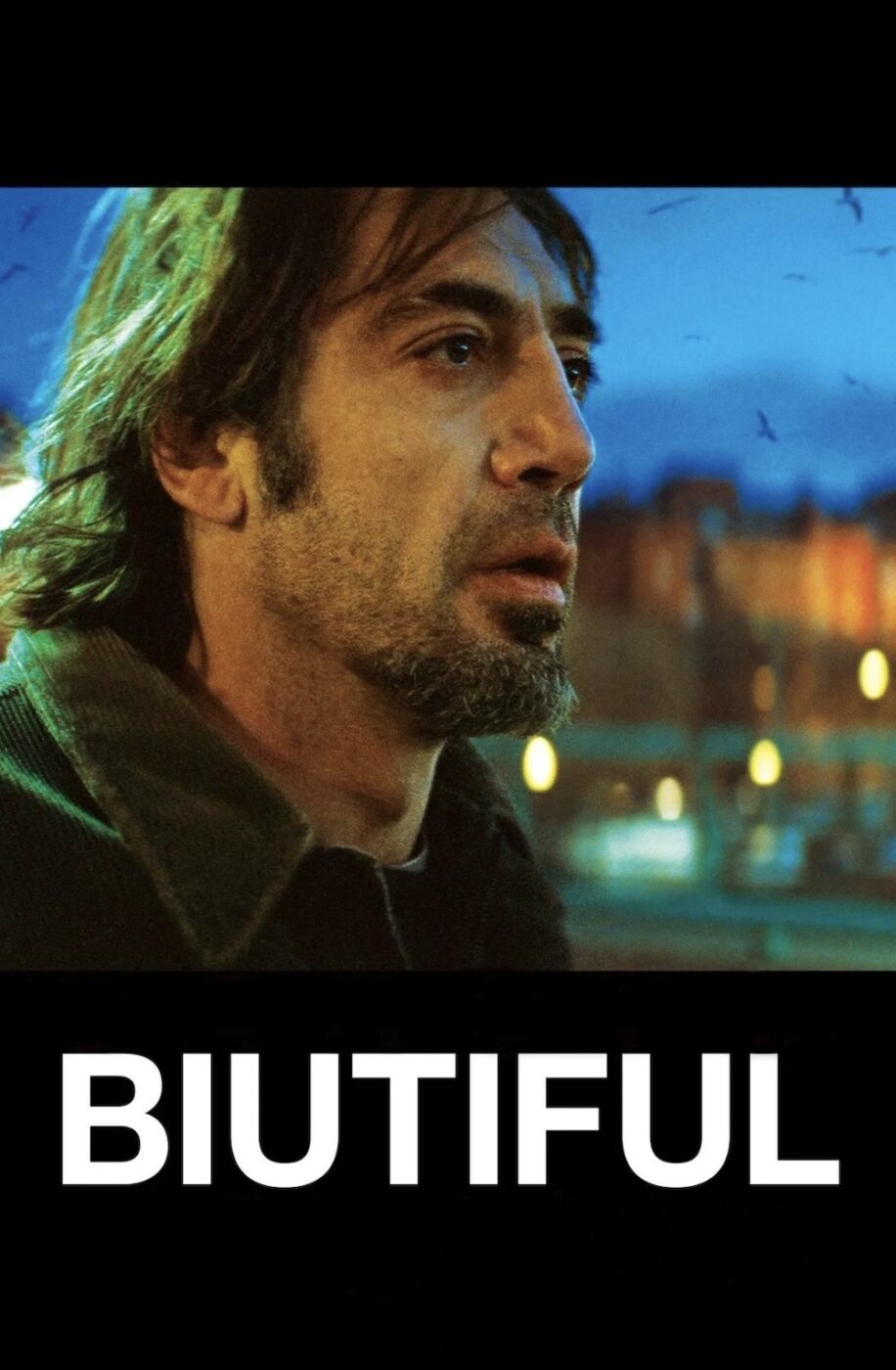
director: Alejandro González Iñárritu.
writers: Alejandro González Iñárritu, Armando Bó & Nicolás Giacobone (story by Alejandro González Iñárritu).
starring: Javier Bardem, Luo Jin, Maricel Álvarez, Hanaa Bouchaib, Guillermo Estrella, Diaryatou Daff, Taishen Cheng & Nasser Saleh.
.
